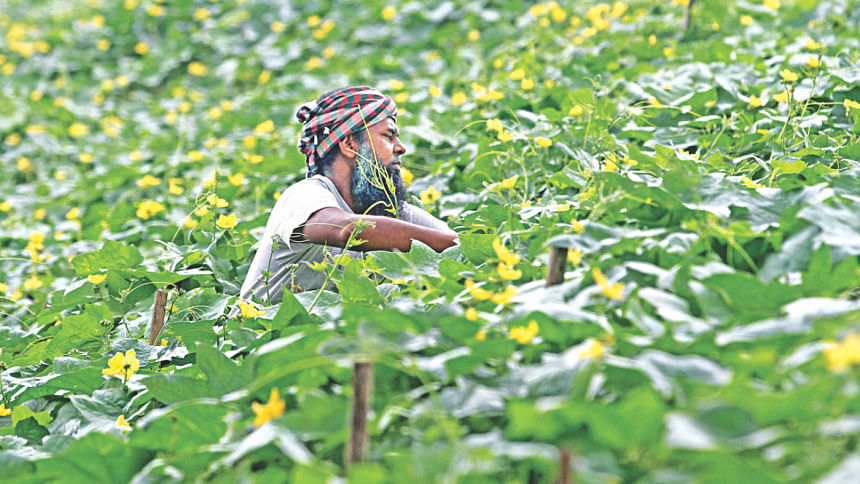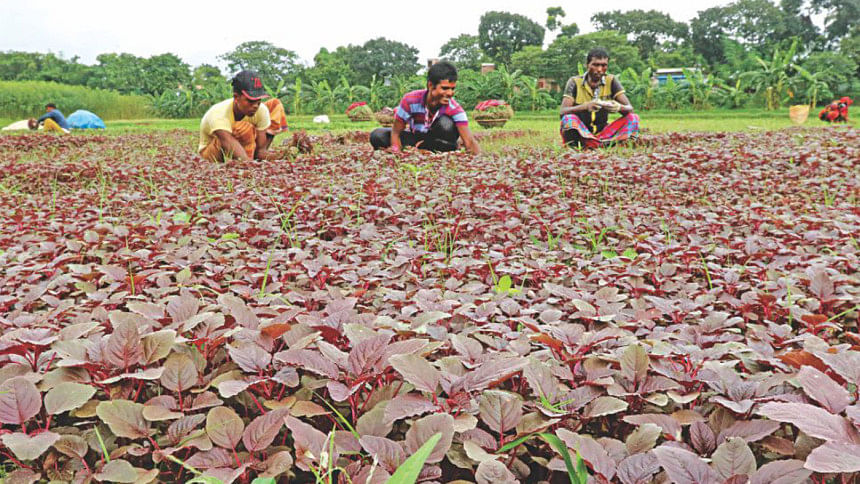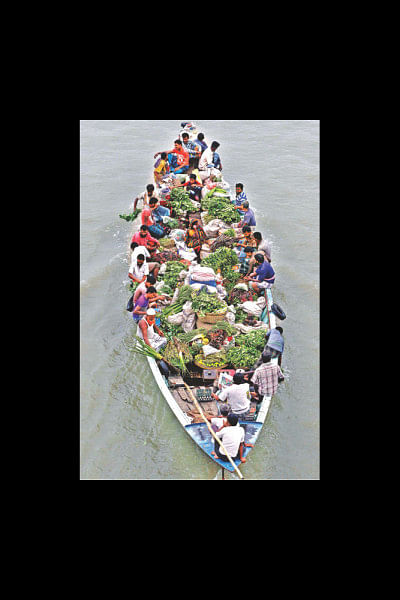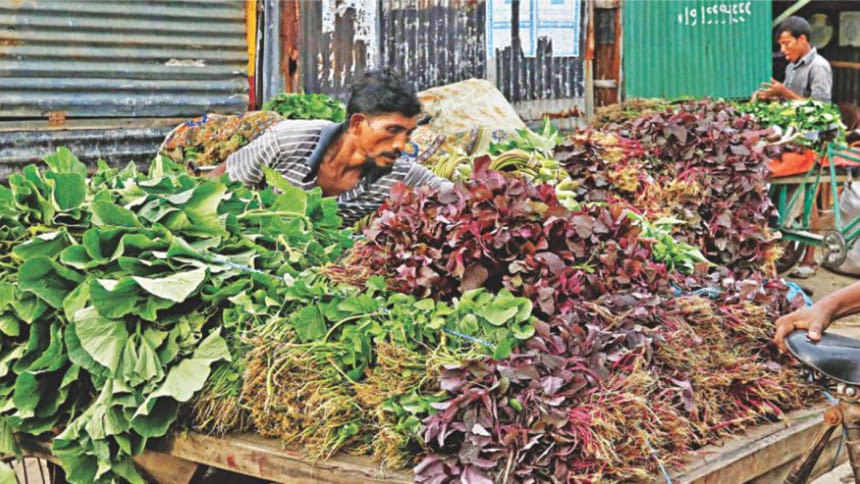Vegetables get dearer

The prices of seasonal vegetables have been increasing in the capital's kitchen markets over the last few days and stakeholders blame floods, incessant rain and poor supply for the hike.
Officials at the department of agriculture and wholesale vegetables traders said crops were lost in a number of key vegetables growing areas due to excessive rain.
Visiting some kitchen markets in the capital, it was seen that green chillies were selling for at least Tk 200 a kg. Some people in the kitchen markets said the prices of every vegetables had increased by at least Tk 5 a kg just over the last one or two days.
“Today [Monday] the price of green chillies is Tk 200 a kg, which was Tk 180 just a day before. I bought aubergine for Tk 60 a kg yesterday [Sunday], but today they are asking for Tk 70,” said Mainul Hossain at Kathalbagan kitchen market yesterday morning.
Omar Farukh, president of Karwan Bazar wholesale vegetable traders' cooperative society, claimed that the supply of seasonal vegetables had dropped by at least 40 percent than that of this period last year.

“This year, the situation is really bad. There are almost no vegetables in the market,” claimed Omar.
Seasonal vegetables, including snake gourd (Chichinga), edged gourd (Jhinga), pointed gourd (Potol), sponge gourd (Dhundul), and string beans (borboti), were around Tk 20 a kg last year, he said.
“But yesterday, the wholesale price of all those vegetables rocketed to Tk 40 to Tk 50 a kg,” said Omar.
Last year the price of a piece of ash gourd was not more than Tk 10, which is now Tk 40, he said.
“Generally a kg of Indian spinach (Pui shak) cost around Tk 10, but this year it is Tk 25,” added Omar.
Officials of the Department of Agricultural Extension (DAE) said vegetables prices were increasing as crops had been destroyed in many areas, including the north, Jessore, and Khulna.

Even in Dhaka, farmers were complaining of losing their crops, they said.
“Too much rain is ruining my sponge gourds and ash gourds. A few days ago, my flowering sponge gourd plants died. I planted again,” said Osman Ali, a farmer of Dhaur area near Ashulia.
The DAE said vegetables on 13,000 hectares, out of three lakh hectares, in the north region and coastal areas were destroyed by floods and rain.
Hamidur Rahman, director general of the DAE, said even though it had been raining almost every day since July hampering production, the rainfall alone could not be blamed for the short supply.
“Traditionally, this period [end of monsoon and beginning of autumn] is not so good for vegetables production,” he said, adding that there were other factors to consider.
Transport of vegetables is also hampered during this time, he said.
“For instance, in the last few days the Mawa ferry service was disrupted and many vegetables laden trucks had to wait on the river side to get across,” he said.
This situation might linger since the Met office said the monsoon would be fairly active and cause a good amount of rainfall in the country in the first week of this month.


 For all latest news, follow The Daily Star's Google News channel.
For all latest news, follow The Daily Star's Google News channel. 



Comments